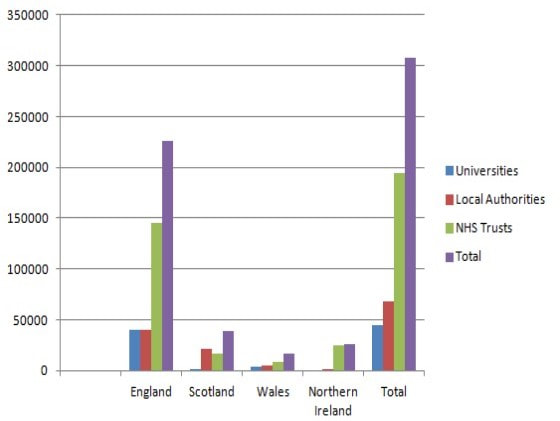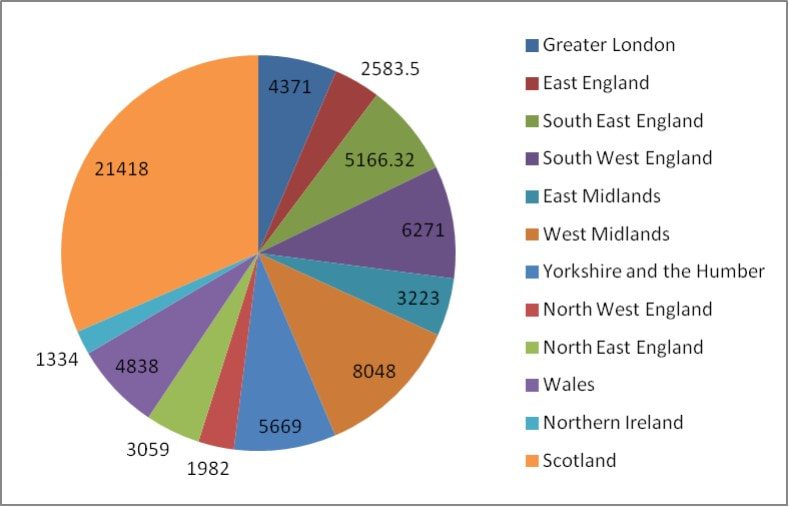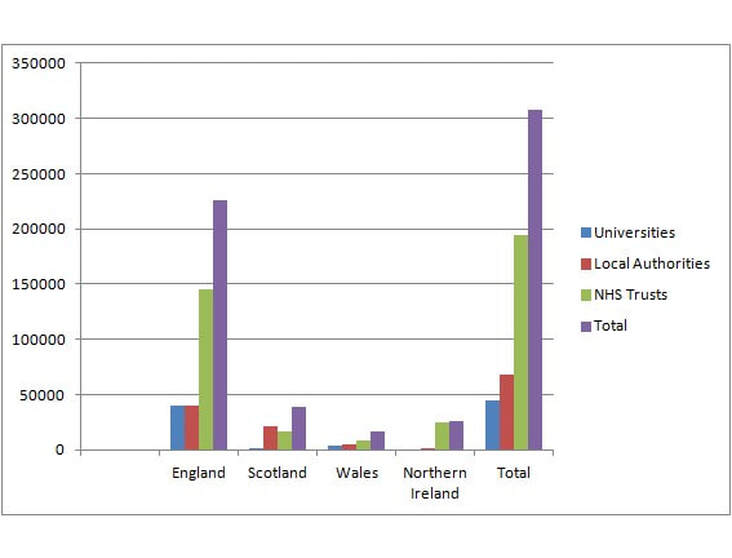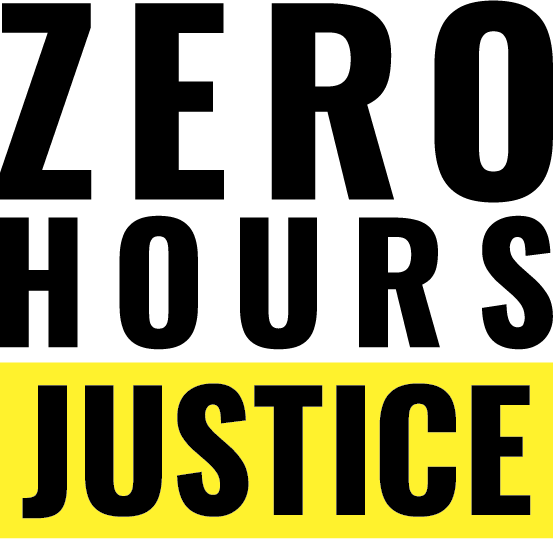|
By Pravin Jeyaraj At least 20% of the zero hour workers in the United Kingdom work for the Welsh public sector, according to research carried out by Zero Hours Justice. The research reveals that Wales makes up 8.4% of zero hours workers in UK universities, 7.1% in local authorities and 4.1% in NHS Trusts. Yet, according to research carried out by the trade union Unison, 70% of people in Wales do not think that firms receiving public money should be allowed to use staff on zero hours contracts. Furthermore, according the latest figures from the Office for National Statistics, the proportion of people on zero hours contracts in Wales is just 2.7%. The UK average is just 3%. We agree that one should question the morality of using taxpayers' money to pay for cheap, insecure labour. But it would surely be hypocritical of public sector employers to only sign contracts with firms that do not use zero hours contracts, without looking at their own recruitment practices. Earlier this month, Scottish Labour pledged to stop private sector employers who use zero hour workers from benefitting from contracts with the public sector, without asking whether the public sector is just as much a part of the problem. The study from Zero Hours Justice is based on the Freedom of Information requests made to 799 universities, local authorities and NHS Trusts during the last 12 months. It did not look at other types of public sector organisations, such as schools or police forces.
By Pravin Jeyaraj
According to the latest data from the Office for National Statistics, 22% of those working in the accommodation and food industry and 10% of those in the wholesale and retail sectors are on zero hour contracts. Nowhere was this felt more acutely than in the food sector itself. A survey of the food sector by the Bakers, Food and Allied Workers' Union, in which 227 people responses, found that:
By Pravin Jeyaraj
The death rate from Covid is particular stark amongst male insecure workers, at 51 per 100,000 people aged 20-64, compared to 24 per 100,000 people in less insecure occupations. However, even for female insecure workers, the mortality rate was 25 per 100,000 people, compared to 13 per 100,000 in less insecure occupations. In addition to a greater likelihood of being on the frontline against Covid, the higher mortality rate amongst precarious workers has been driven by the reality that they are only paid if they work. No work, even if they are sick, means not being able to pay bills. Statutory sick pay is too low to to make up for the income lost from not working and many insecure workers may not even be eligible for it. According to a poll conducted by BritainThinks for the TUC, 67% of insecure workers said they receive no sick pay at all, compared to 7% of those in secure work. We agree with the TUC's assessment that many employers are encouraged treat insecure workers as "disposable labour" due to the lack of employment rights. Of the zero hours workers who have contacted us in the past 12 months or so, the vast majority have complained about simply seeing their work disappear without being furloughed. We have seen examples of good employers who have furloughed zero hours and casual workers. Yet, other employers have simply pointed to the lack of any contractual obligation to pay zero hours workers for not working. After all, if an employer doesn't have to pay staff, why would they, especially when they are unable to open as usual.
nearly 40% of zero hour workers polled offered work with less than a week's notice before shifts15/4/2021
By Pravin Jeyaraj
Of this group, 62% said that they were offered work with less than a week's notice their work schedules. 12% of this group, amounting to 7% of all working adults, were given less than 24 hours notice.
The situation is even worse in London, where almost half (48%) of all workers received less than a week's notice of work schedules. Whilst some will value the flexibility offered by zero hours contracts, for many, not knowing whether there will be work from week to week - or even, from day to day - would create an inordinate amount of insecurity and stress. If you do not know whether you will have paid work each week, it is difficult to know whether you will be able to pay your bills or even plan your life with a degree of certainty. At the same time, if you are earning below the Living Wage, the choice can often be between accepting the offers of work, rescheduling other appointments or rearranging childcare. Zero Hours Justice's minimum criteria is that employers who use zero hour contracts should offer work with at least two weeks' notice and to pay some for compensation for agreed shifts cancelled at short notice. In addition, we urge them to review the actual hours worked of each zero hour worker and start a conversation with the worker about moving over to a fixed hours or minimum hours contract that accurately reflects hours worked. Under its Living Hours programme, the Living Wage Foundation requires employers to both pay a real Living Wage and commit to providing at least four weeks’ notice for every shift, with guaranteed payment if shifts are cancelled within this notice period. Living Hours employers also provide a guaranteed minimum of 16 working hours every week (unless the worker requests otherwise), and a contract that accurately reflects hours worked. By Pravin Jeyaraj Scottish Labour has pledged to tighten public procurement rules so that any private sector employer who uses zero hours contracts cannot benefit from contracts with the public sector. But, as attractive as the policy might sound, the party would be better off looking at the employment of zero hours workers within the public sector itself. According to research carried out by Zero Hours Justice, local authorities in Scotland directly employ the largest number of zero hour contract workers, compared with other regions in the United Kingdom. The data was obtained via Freedom of Information requests to universities, local authorities and NHS employers, with a response rate of 94%. The data revealed that, of 67,962 zero hours workers directly employed by local authorities in the UK, over 21,000 (31%) of them worked for Scottish local authorities. By comparison, the second highest number, 8048, worked for local authorities in the West Midlands, a share of just 11%. Despite the predominance of zero hours contracts in Scottish local authorities, compared to the rest of the UK, most directly-employed zero hours workers in universities, local authorities and NHS trusts are in England. This is not surprising, given that England makes up for 82% of the population of the UK. English universities and NHS Trusts directly employ 89% (40,129) and 74% (145,226) of zero hours workers UK universities and NHS employers respectively. By comparison, Scottish universities directly employ just 1% of zero hours workers in UK universities. Scottish NHS Trusts employ 8% of the zero hours workers in the NHS.
|
contactFor press enquiries or permission to reuse content, please contact: Archives
June 2024
CATEGORIES
All
|
|
Company No: 12417909 Registered Office: 38 Coney Street, York, Y01 9ND
|







 RSS Feed
RSS Feed


